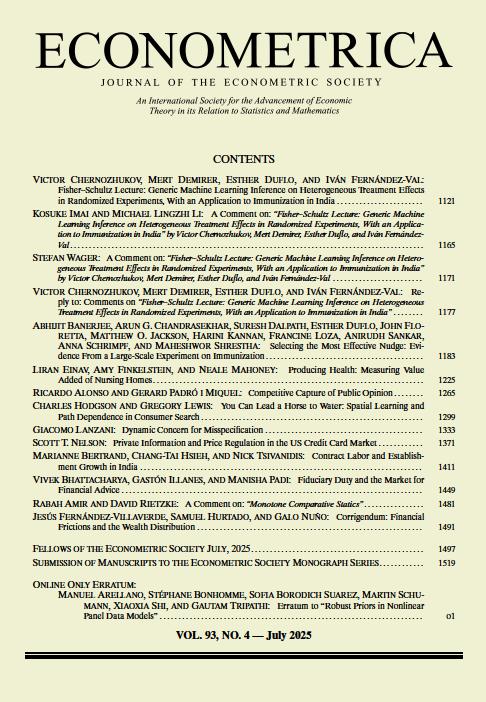Dynamic Choices of Hyperbolic Consumers
Abstract
Laboratory and field studies of time preference find that discount rates are much greater in the short-run than in the long-run. Hyperbolic discount functions capture this property. This paper solves the decision problem of a hyperbolic consumer who faces stochastic income and a borrowing constraint. The paper uses the bounded variation calculus to derive the Hyperbolic Euler Relation, a natural generalization of the standard Exponential Euler Relation. The Hyperbolic Euler Relation implies that consumers act as if they have endogenous rates of time preference that rise and fall with the future marginal propensity to consume (e.g., discount rates that endogenously range from 5% to 41% for the example discussed in the paper).




